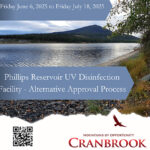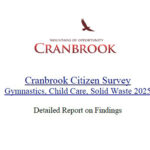Home »

Inspect aquariums to prevent spread of invasive mussels
Anyone who has a moss ball in their aquarium is being asked to inspect the plant for invasive zebra mussels now that the highly invasive species has been found in a number of locations throughout the province, the B.C. Ministry of Environment and Climate Change Strategy asked March 10.
“During the past weekend, conservation officers conducted more than 600 inspections at retail aquatic pet and plant stores and found zebra mussels in moss balls at multiple locations, including Terrace and the Lower Mainland. People have also reported finding the mussel-infested moss balls in their aquariums across western Canada and several U.S. states,” the ministry stated.
Zebra mussels pose a major threat if released into a B.C. waterway. The tiny mussels can wreak havoc on aquatic ecosystems, salmon populations, hydro power stations and other facilities because they multiply rapidly and are extremely difficult to eradicate.
The Conservation Officer Service (COS) is investigating how widespread the problem of mussel-infested moss balls may be in the province. This includes notifying stores that may potentially have contaminated moss balls and advising them of disposal options. Any contaminated moss balls have been seized.
The moss balls, which are often sold as marimo moss balls, are species of green algae typically purchased for aquariums to improve water quality. Moss balls can also be purchased online.
Anyone who finds zebra mussels can call the Report All Poachers and Polluters hotline at 1 877 952-7277 to report their find. Moss balls can be safely disposed of by:
* placing them in a sealed plastic bag and putting them in a freezer for at least 24 hours, or
* placing them in boiling water for at least one full minute and then let cool.
After that, the moss balls can be thrown in the trash. Do not flush moss balls down the toilet or put them in the compost. Once the moss balls have been removed from the aquarium, do not dispose of untreated water down the drain or into any residential water system or waterway. Sterilize the remaining contaminated water by adding 25 millilitres of bleach per litre of water. Let the water sit for at least 15 minutes before disposing it down a household drain. Disinfect tanks and accessories.
The COS is working with ministry science experts, Canadian and U.S. counterparts, industry retailers and distributors to help prevent any potential spread of invasive zebra mussels. To date, there has been no reported introduction of live zebra mussels into B.C. lakes or waterways.
e-KNOW







